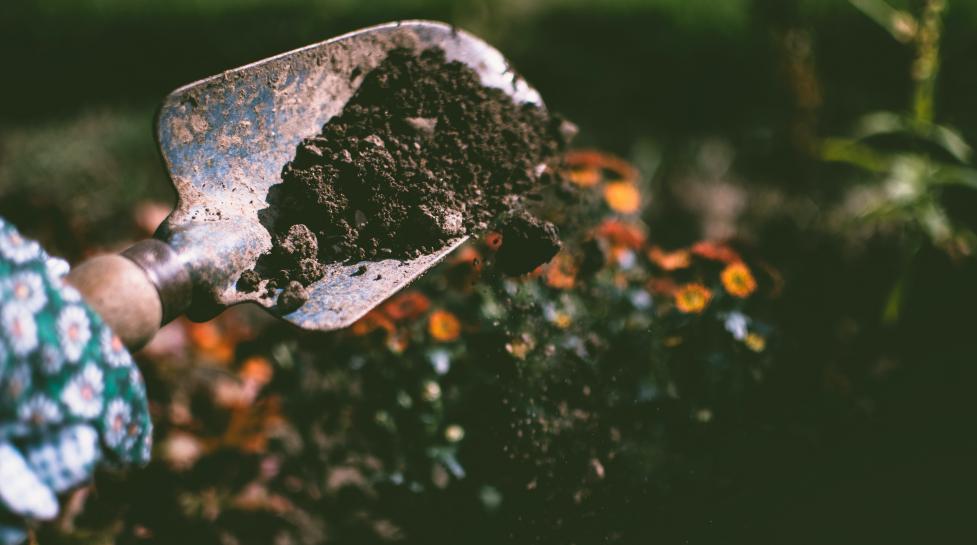Celebrate the recycled material that supports life on our planet.
International Compost Awareness Week is coming up!
May 4 through 10 is International Compost Awareness Week, a time to celebrate the soil that brings life to our gardens, farms and other natural spaces.
What is compost?
Compost is a mixture of decomposed food scraps, yard trimmings and other materials that were once living. In some places it may contain other compostable materials like newspaper, certified compostable takeout containers, greasy cardboard and coffee filters.
Learn how to keep our community’s compost healthy and free of contamination.

Composting moves us toward zero waste while combating the climate crisis.
Choosing to compost, whether in your curbside bin or garden, keeps organic matter out of our landfills, where it takes up space and releases potent greenhouse gases that warm our planet.
Food scraps, yard debris and other organic materials cannot break down properly when buried under layers of trash in a landfill. Without access to oxygen or light, they produce methane – a powerful greenhouse gas that is 25 times more effective at trapping heat in our atmosphere than carbon dioxide. By composting, our community avoids these emissions and creates a carbon bank beneath our feet.
Compost acts as a carbon sink by drawing down and storing carbon dioxide in our soil. Carbon dioxide is the most common greenhouse gas emission warming our planet, accounting for almost 80% of our emissions.

Compost is a recipe for regeneration.
The composting process transforms our coffee grounds, eggshells and leaves into a nutrient-rich material that builds stable, living soils.
Compost does this by nourishing beneficial bacteria and fungi that sustain life on our planet. These microorganisms – or microbes – keep our region’s clay soils well-aerated, remove harmful toxins and protect plants from soil-borne diseases. They also make nutrients and water available to plants, allowing our trees, shrubs and seedlings to grow and prosper with less water.

One teaspoon of good quality soil can contain more living organisms than there are people on the planet!
More generally, organic material allows soil to absorb and hold more water, which helps cool our environment. It also prevents erosion and keeps pollutants from entering our waterways.
Soil makes us feel good.
It feels good to put your hands in soil, and science is beginning to understand why.
Researchers from the United Kingdom have linked a species of bacteria commonly found in soil to increased levels of serotonin, a brain chemical that helps regulate anxiety, reduce depression and stabilize mood.
Backyard composting gets people outside, moving and connected with the material that brings vibrancy to our landscapes.

Put your hands in local soil!
Ready to go beyond curbside and backyard composting? Join the Cool Boulder campaign!
Cool Boulder is the latest step in the city’s effort to expand the scope and scale of climate action. It focuses on nature-based climate solutions, like soil regeneration, which increase the natural world’s ability to absorb carbon, heat and water, making our community cooler, healthier and better able to withstand a warmer and more volatile climate.
The scale of action needed to cool our climate requires us to come together as a community — acting as stewards and tenders of the larger living systems that sustain us.
Learn how to get involved with local composting projects and other nature-based climate solutions by checking out Cool Boulder.
